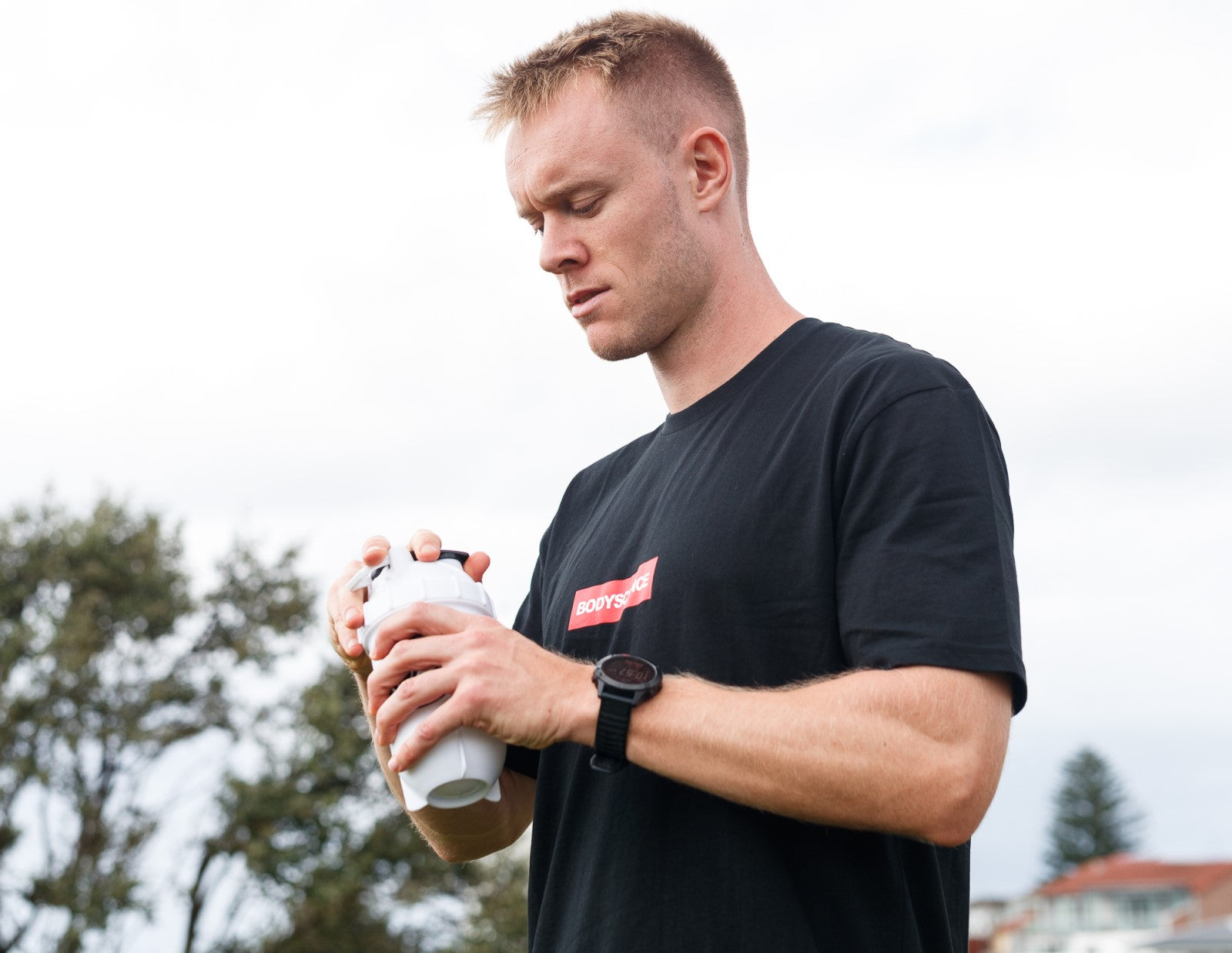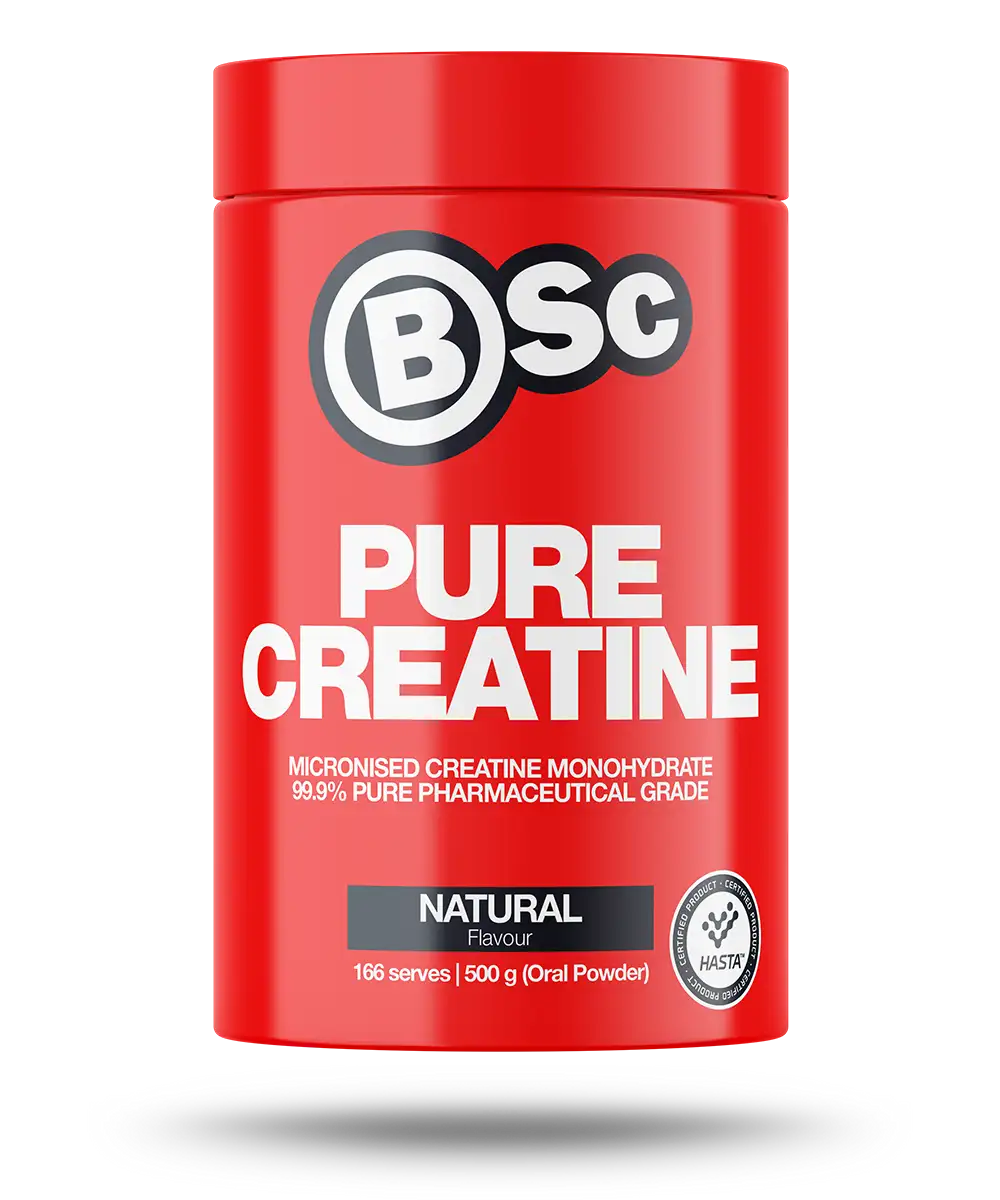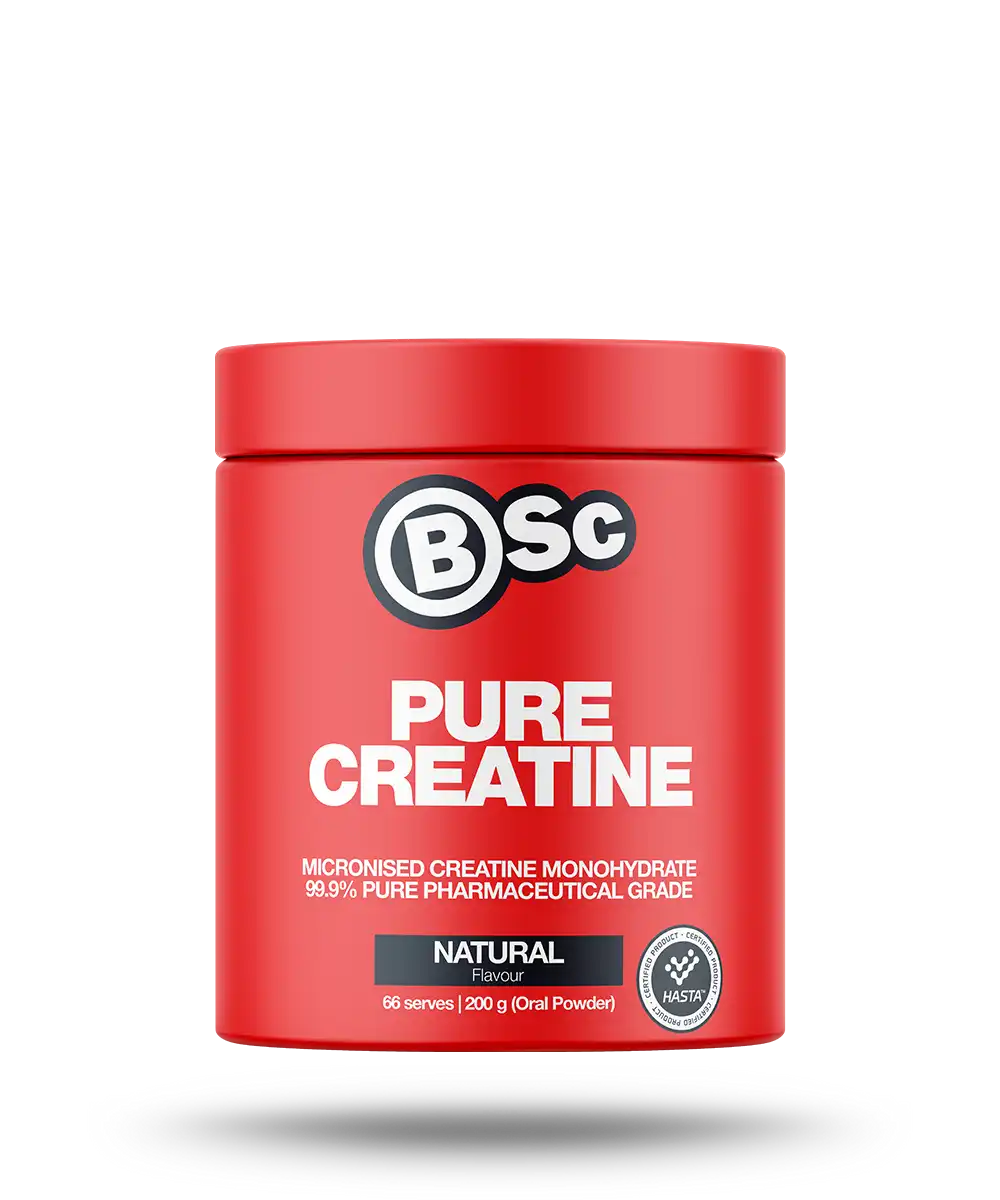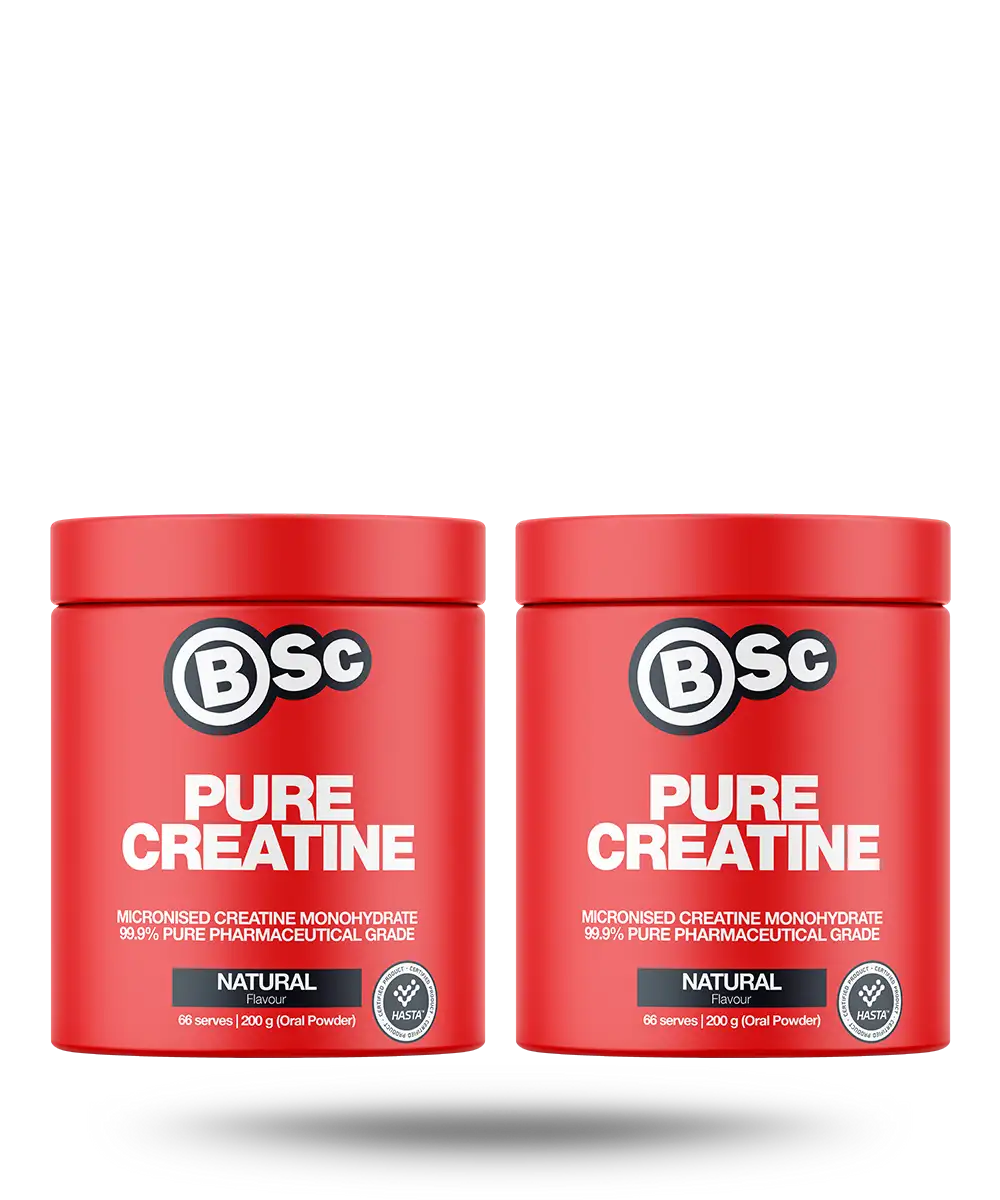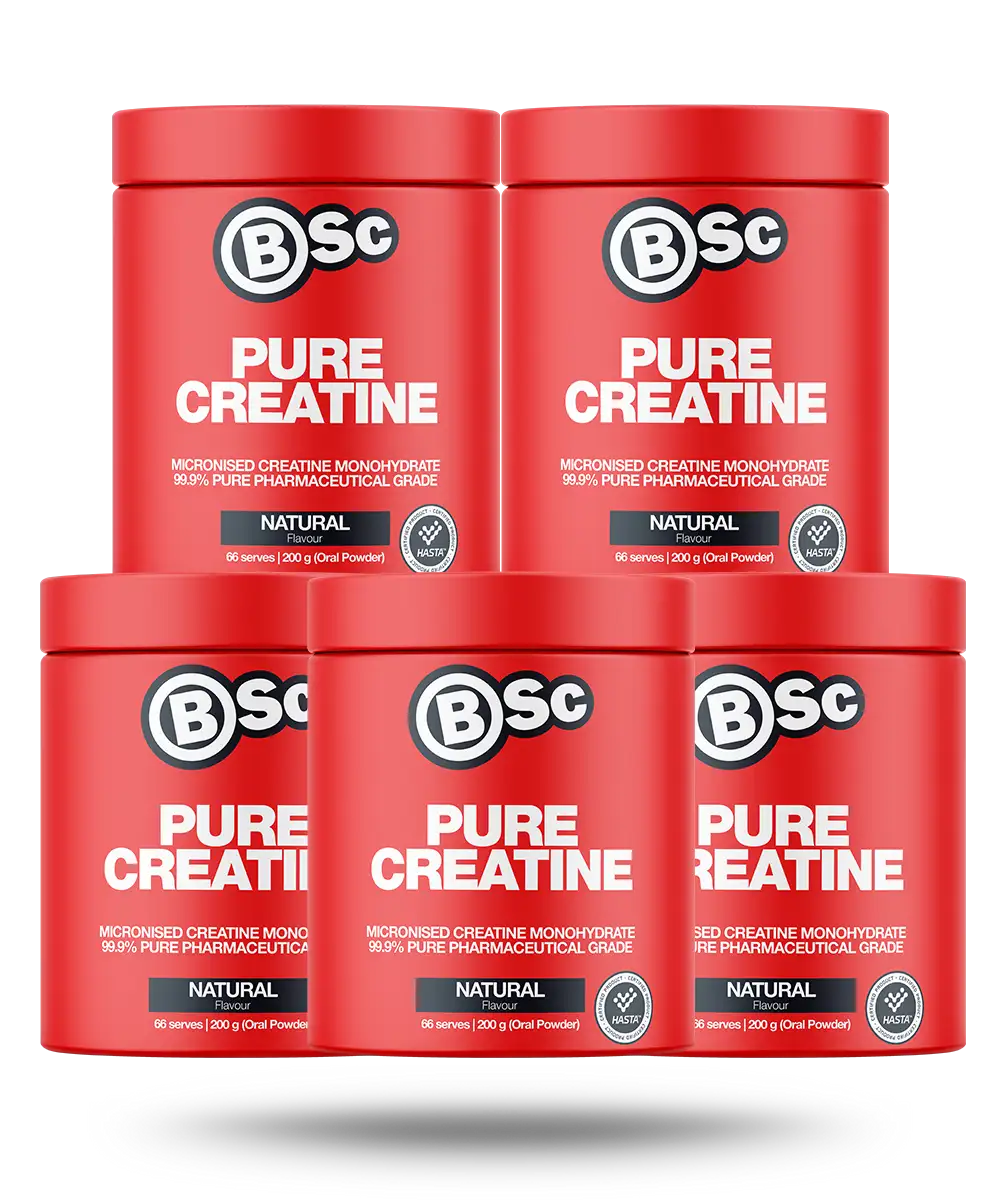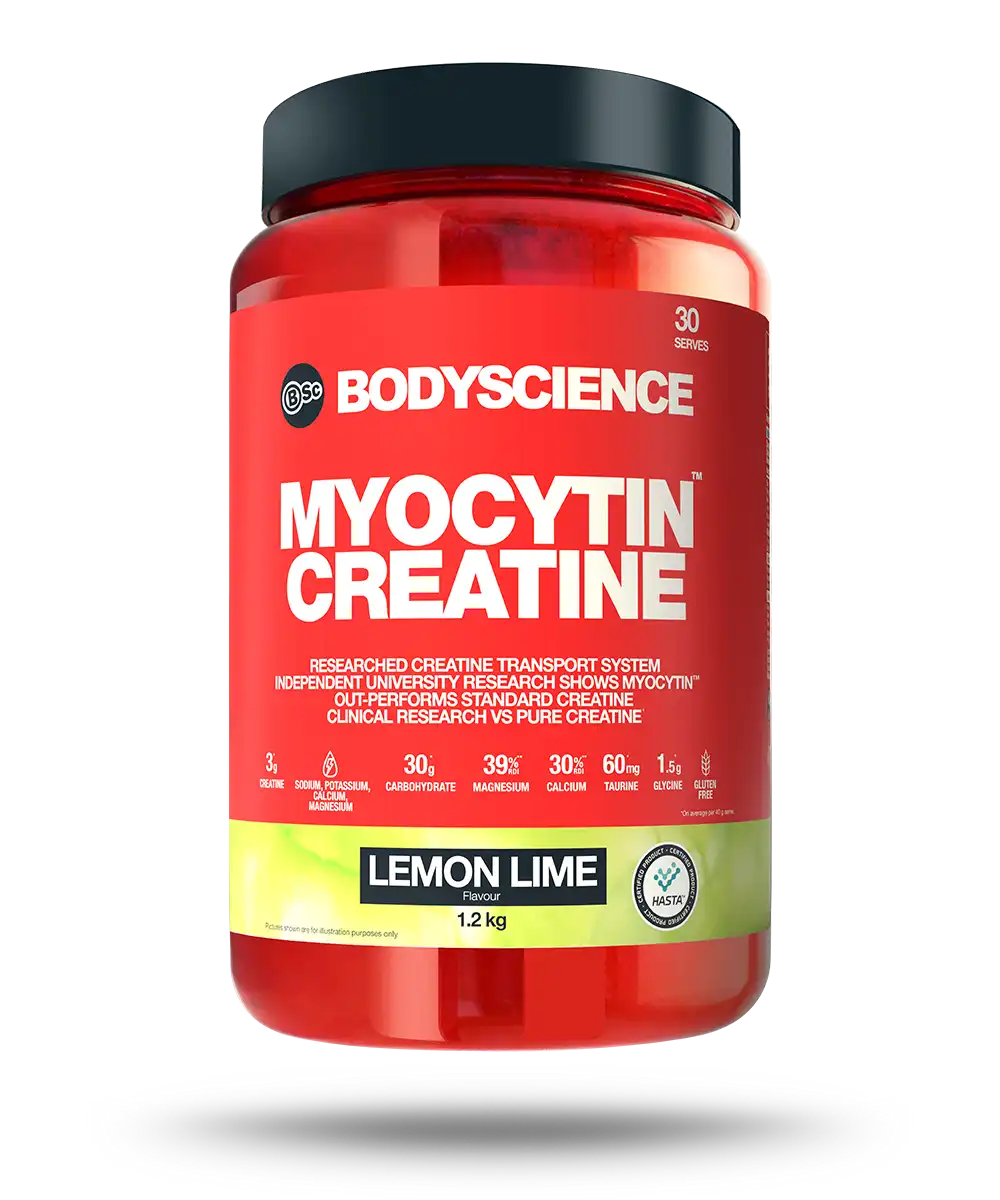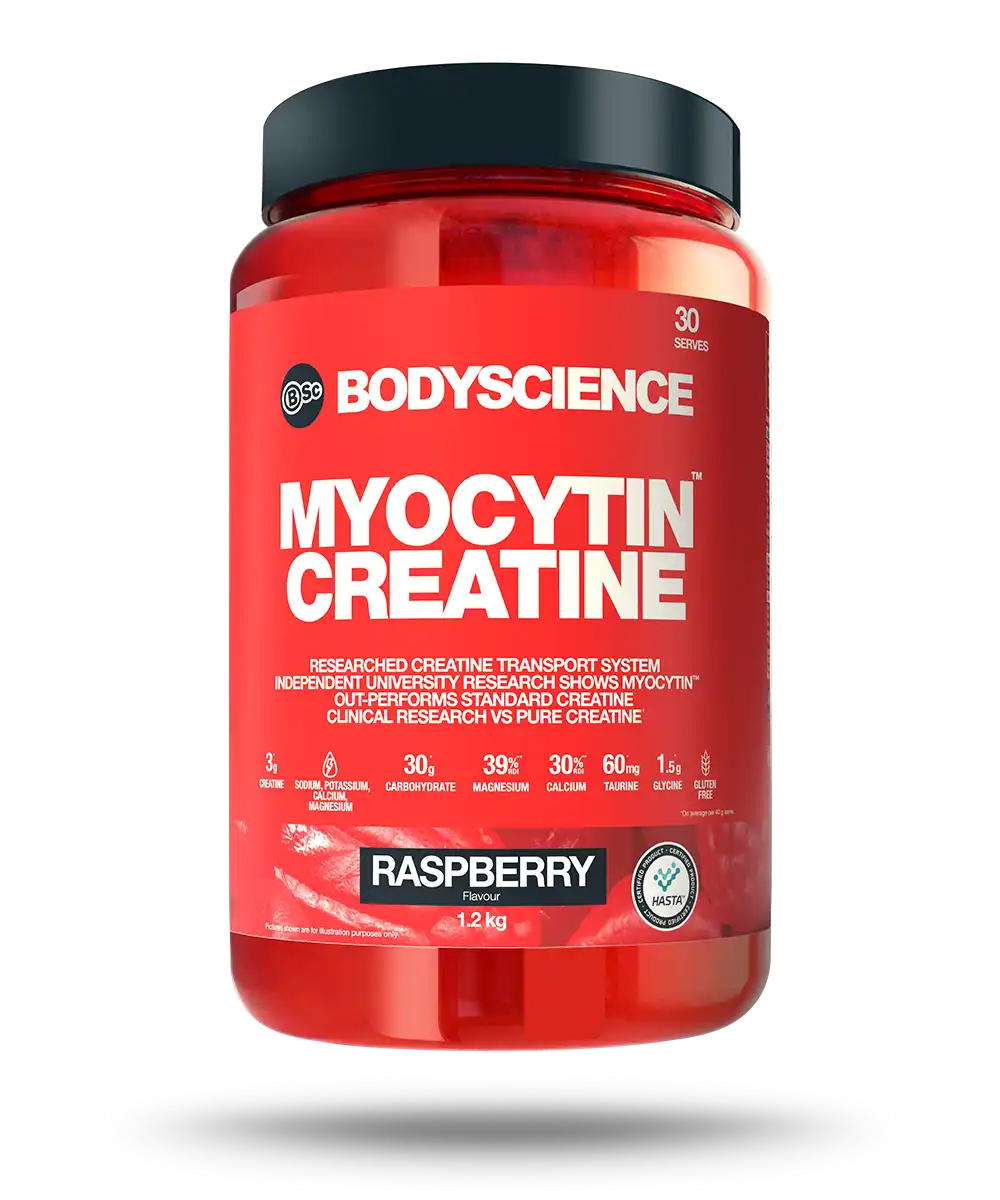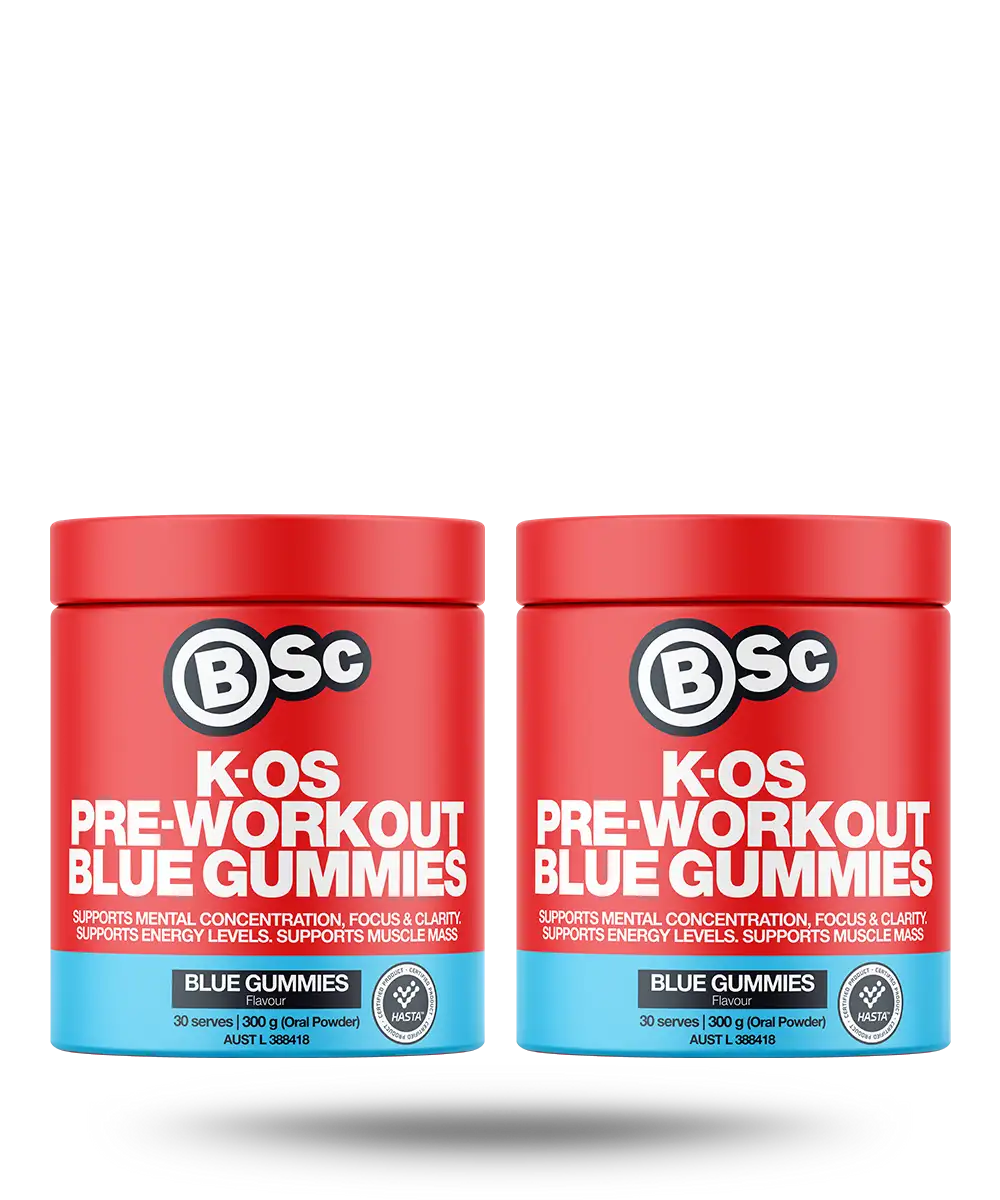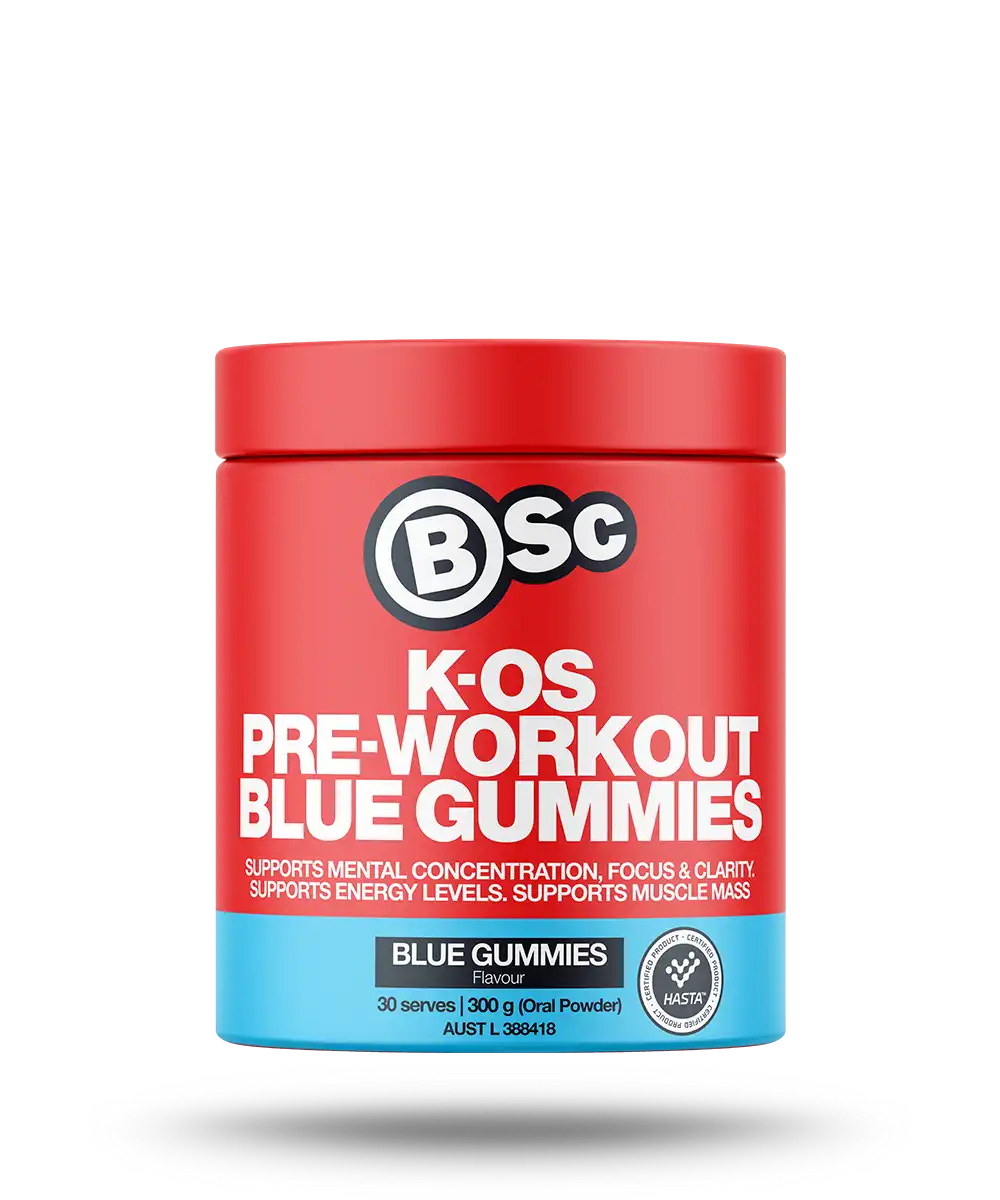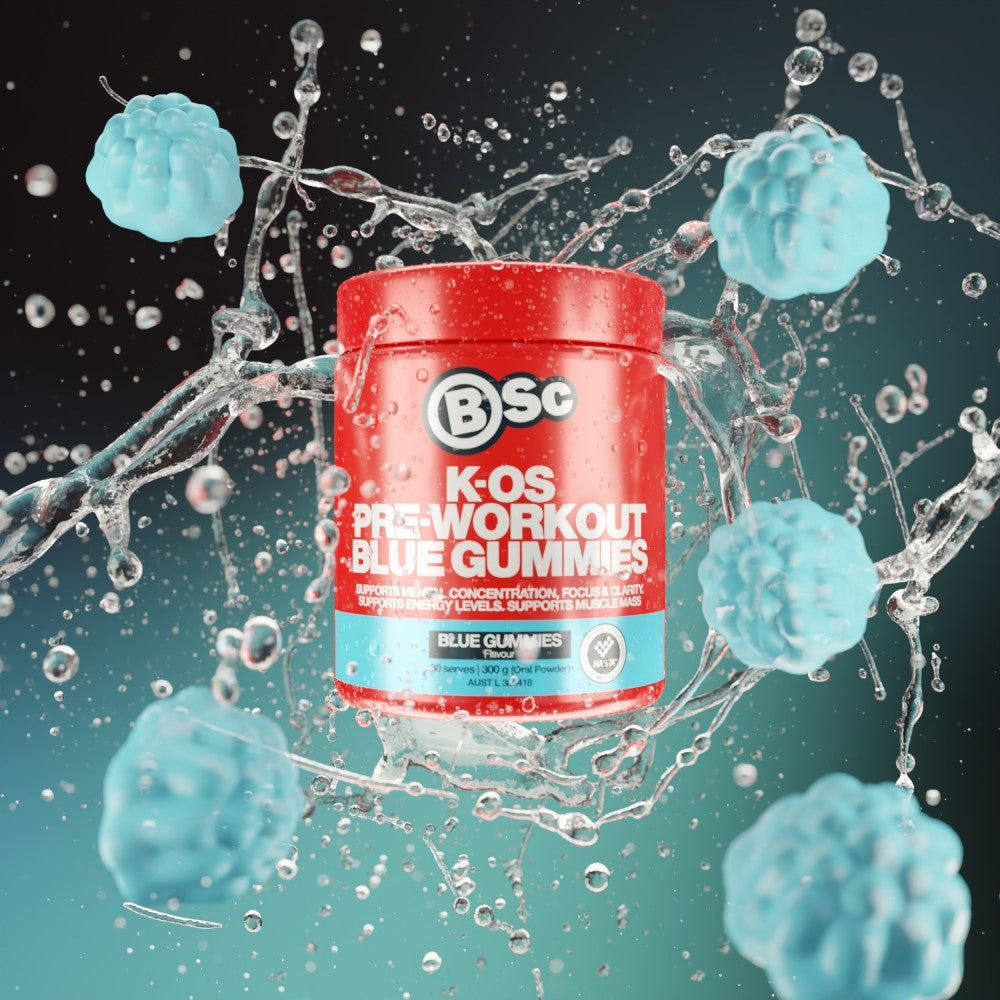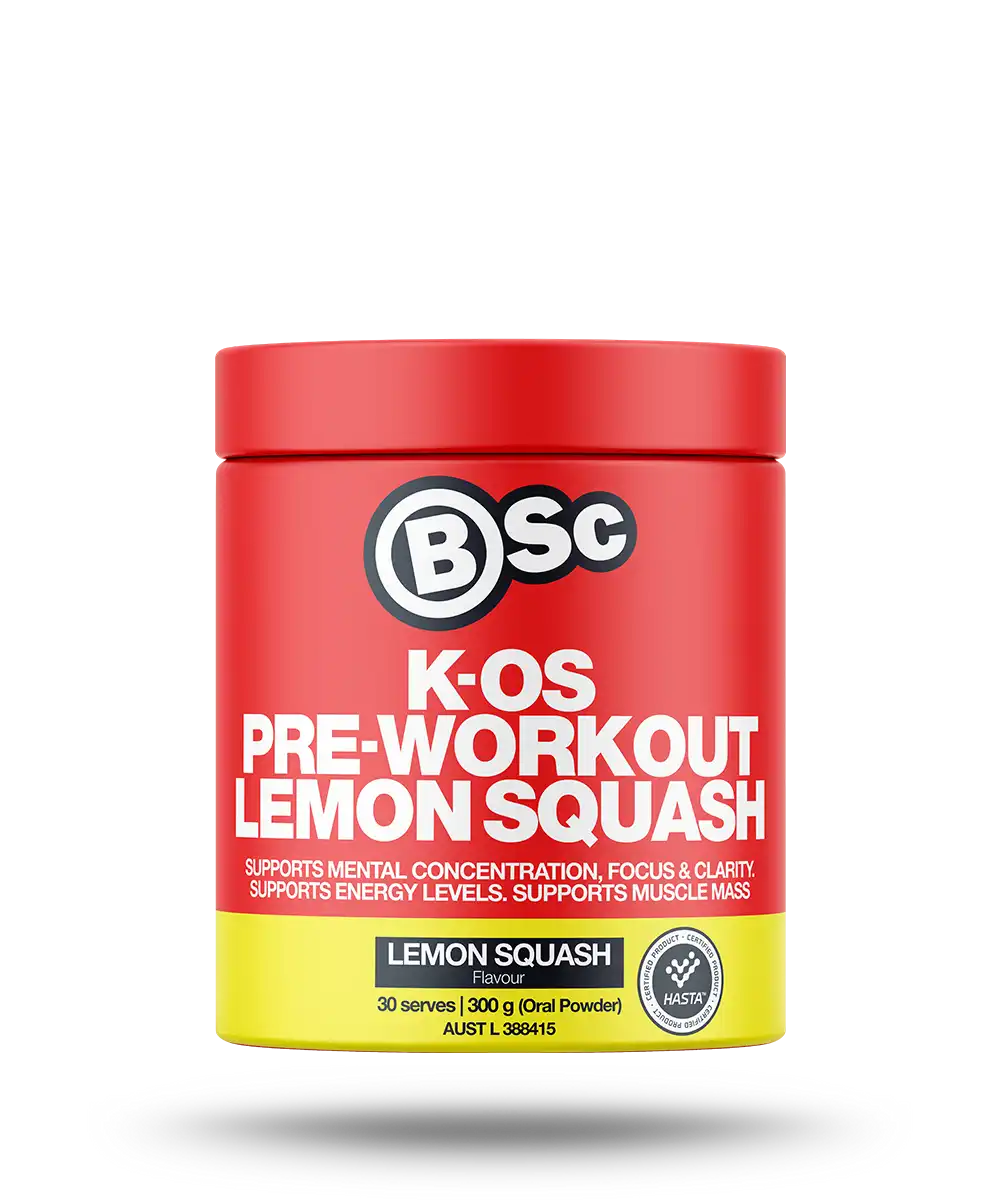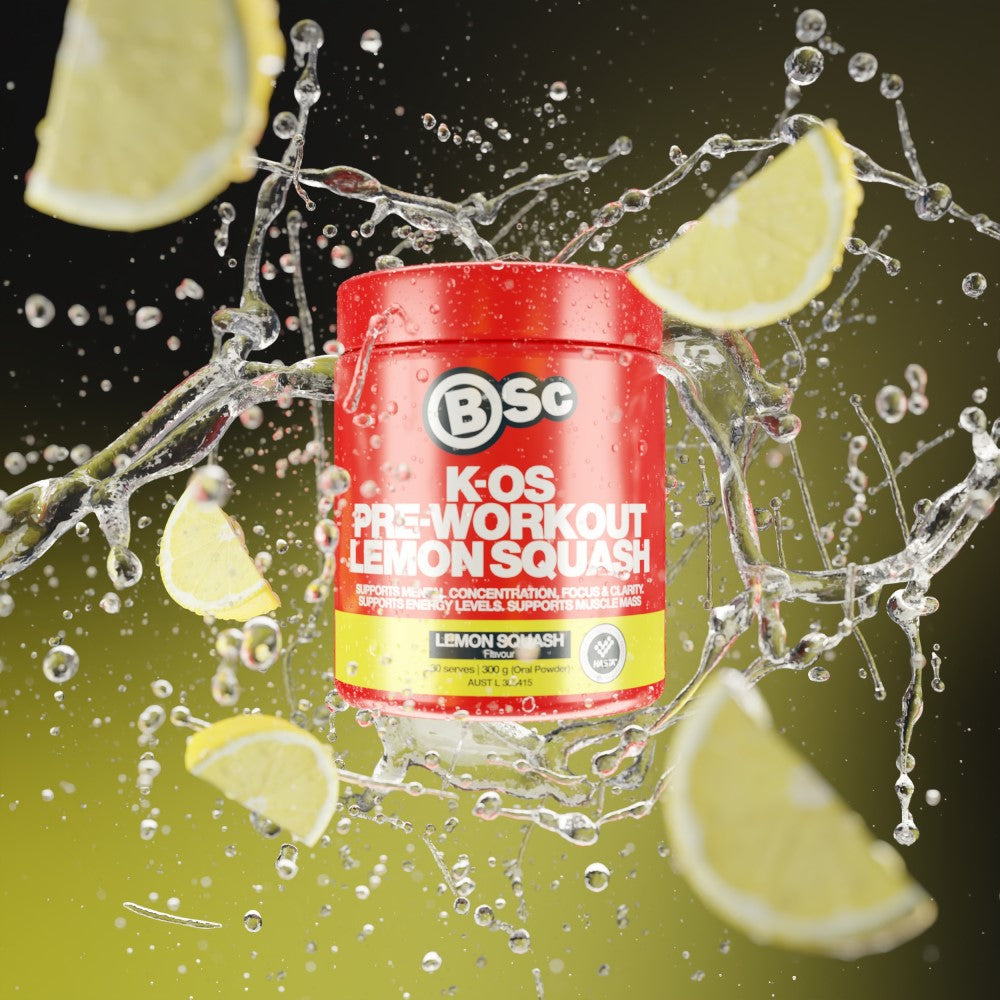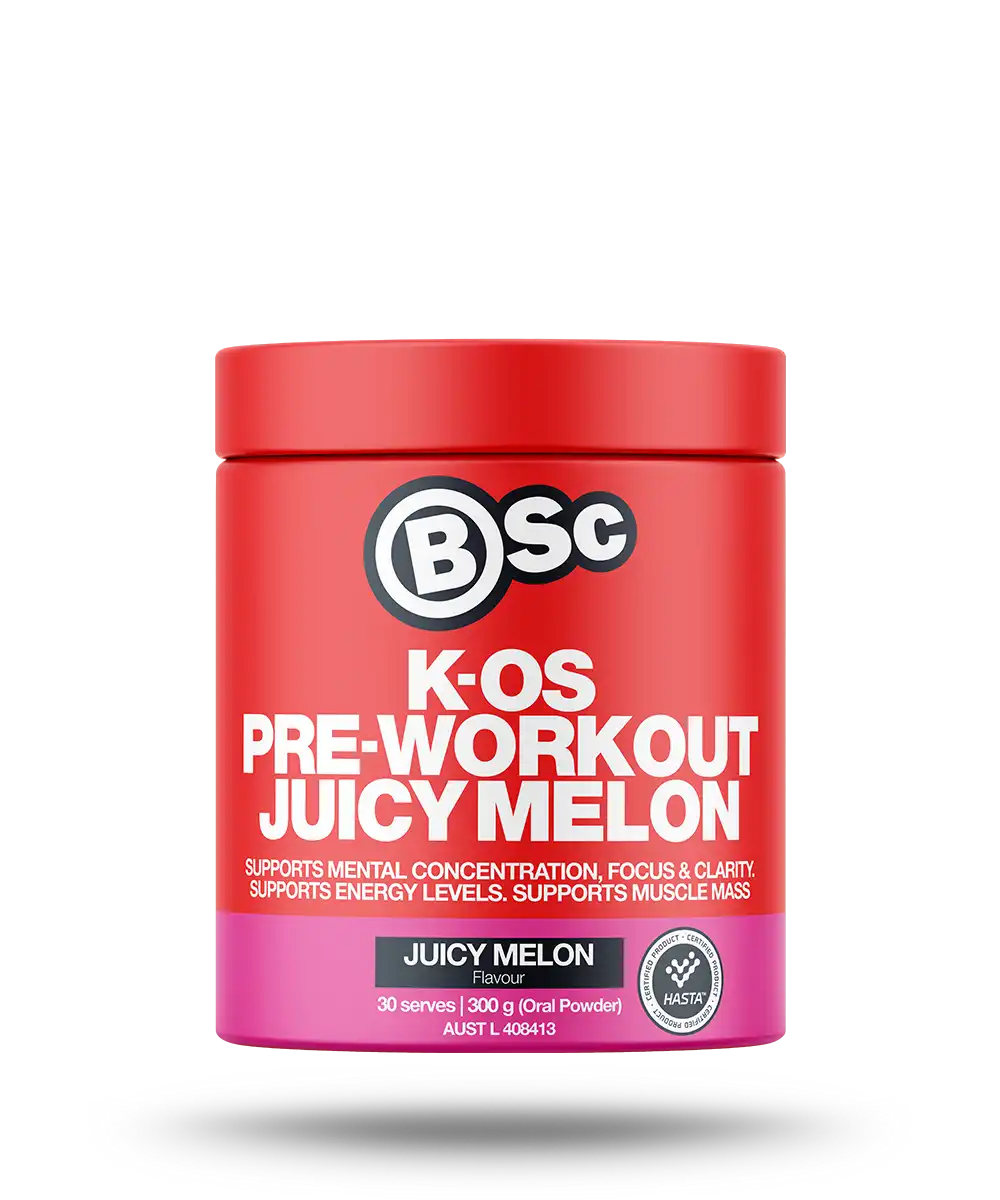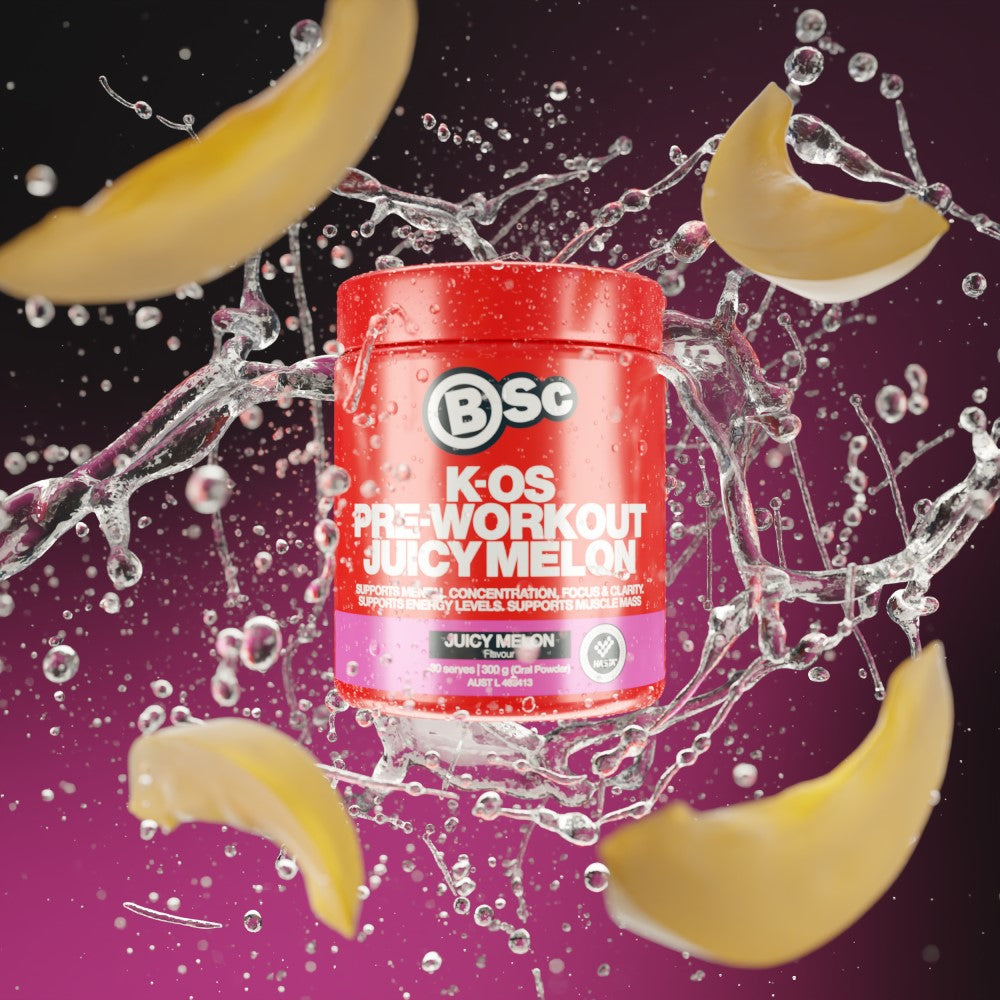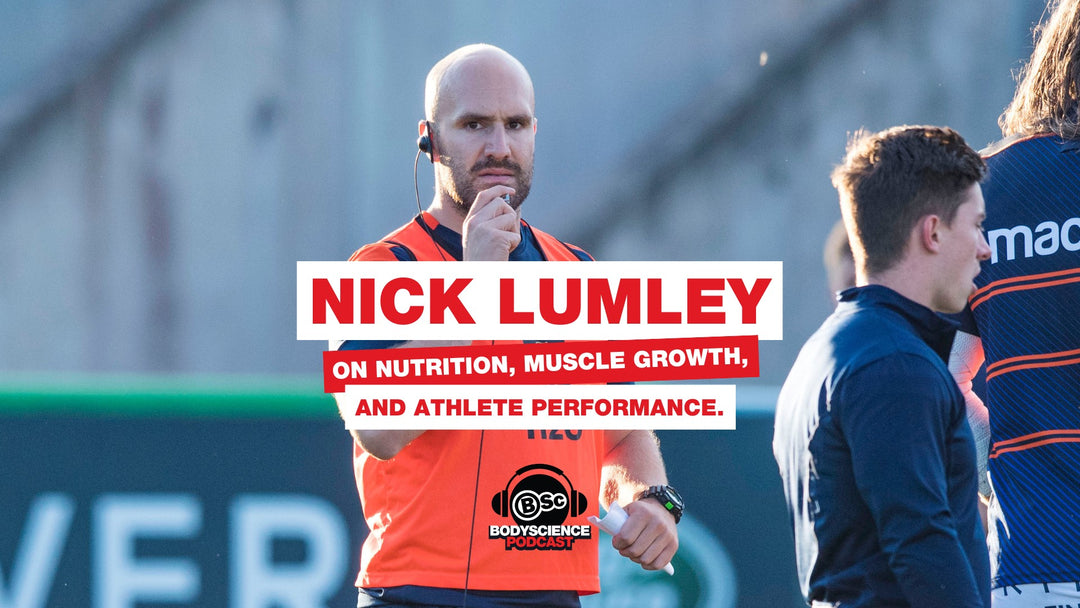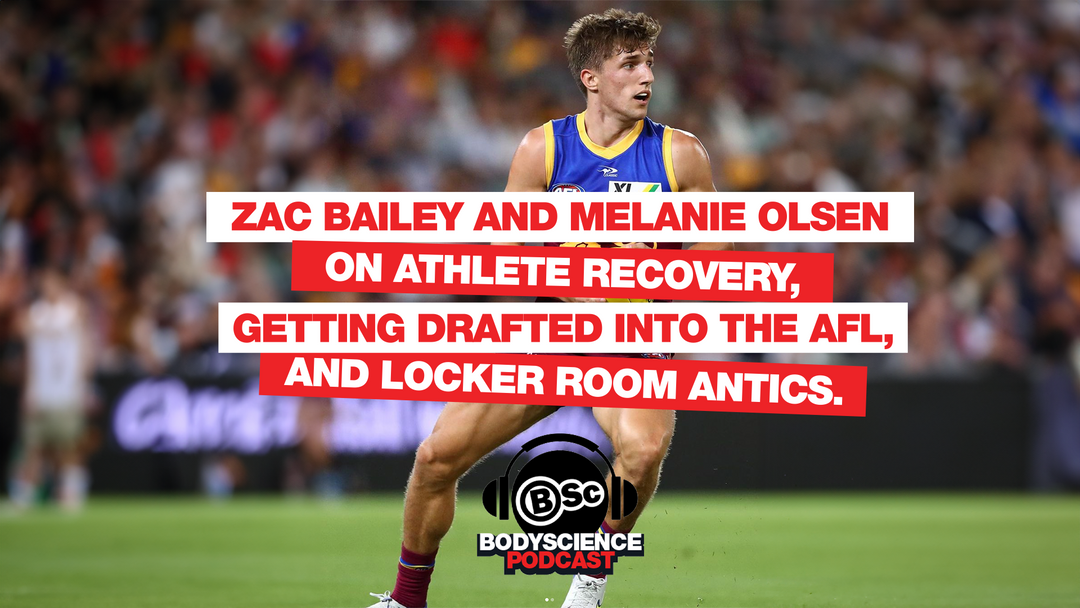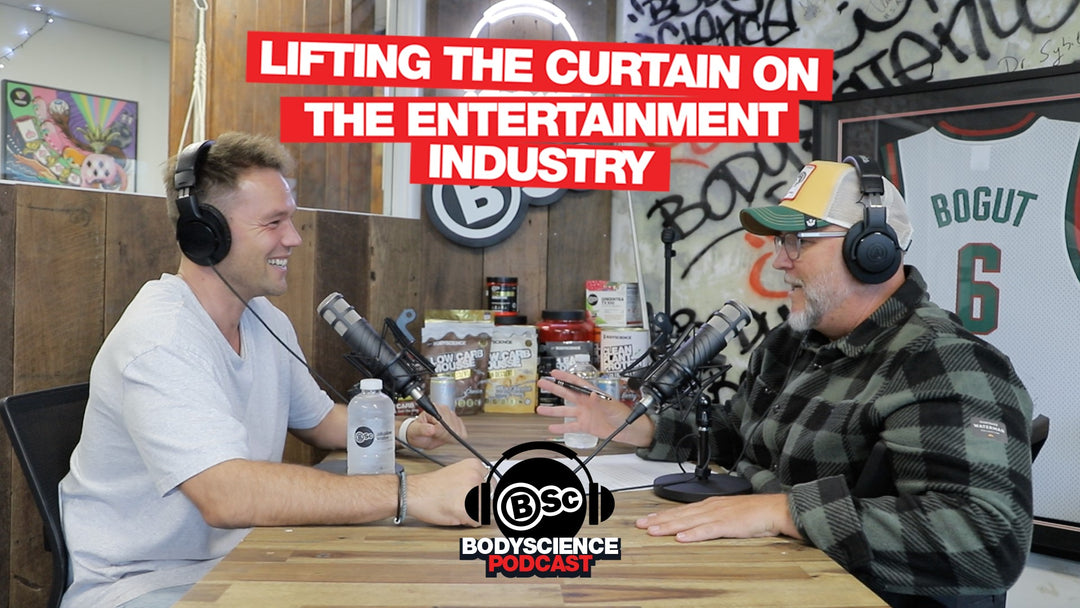They’re three of the most popular supplements on the market, and for good reason.
Creatine, BCAAs, and glutamine have each earned their place as some of the best supplements. They have been shown to improve athletic performance, preserve and increase muscle mass, and promote muscle recovery.
Downing three supplement smoothies a day can be a bit of a slog, so can you mix creatine with BCAA and glutamine to cut the smoothie-load down a bit?
Yep — you can mix creatine with BCAAs as a pre-workout beverage and creatine with glutamine as a post-workout beverage, and you’re good to go!
Let’s break down why this approach works and may be the most effective way to consume your supplements.

What is Creatine?
Creatine is formed by three amino acids.
Essentially, creatine provides our muscle cells with the energy they need to get us moving.
Half of the body’s creatine supply is produced by the liver and kidneys to be delivered to the muscles for use, and the other half is sourced from your diet from foods such as fish and red meat.
But if our bodies produce creatine naturally and we source it from food, why take a supplement?
Taking a creatine supplement increases the stores of creatine in the body, which means more energy for your muscle cells.
Let’s break this down.
Our bodies use adenosine triphosphate (ATP) for energy during physical activity. Creatine stores can be used by the body to produce more ATP, which improves our lifting and HIIT capabilities.
This boost of energy allows us to complete more sets and reps, which eventually leads to gains in muscle size and strength.
So in other words, creatine increases lean muscle mass by giving us an energy boost that make us work harder and lift heavier, which leads to more muscle gains in the long-run.
Creatine also helps to decrease the likelihood of developing post-workout injuries, muscle tightness, strains and pulls.
When it comes to dosage, there are two phases: the loading phase and the maintenance phase.
If you’re taking creatine for the first time, it’s best to take a loading dose to increase the body’s stores and maximise that energy-boosting potential. A typical loading dose is 20g per day for 2-5 days. Alternatively, you can take a smaller dose for longer, for example, 9g a day for 6 days.
Once you’ve completed your loading phase, you’ll switch to a maintenance dose. The recommended daily maintenance creatine dose is 3g2 to 5g.
Now, for when to take your creatine dose.
Creatine loads your muscles with energy to get moving, so taking creatine before you work out will allow you to maximise this energy hit and work harder during your session.
On the other hand, taking creatine post-workout also has its benefits. Post-workout, your creatine stores will be depleted because you’ve used it all up to fuel your workout. Taking your supplement post-workout can top up these stores and recharge your muscles so that you’re ready to go again later.
Alternatively, you can actually split your daily creatine dose and have one half before you workout, and the other half after you work out. This gives you the best of both worlds — the energy-boosting benefits pre-workout, and the muscle recover benefits post-workout.

What are BCAA’s?
BCAA stands for Branch Chain Amino Acids.
BCAAs are amino acids, which are organic compounds our bodies need to synthesise protein and function properly.
There are 20 amino acids that make up the proteins in our bodies. Nine of the 20 are considered ‘essential’, meaning they can’t be made naturally by our bodies so they need to be sourced from our diet.
Of the nine essential amino acids, three are BCAAs. These are I-valine, I-leucine, and I-isoleucine.
When you’re weight training, these amino acids are beneficial in a few key ways ways.
Firstly, BCAAs can help to increase muscle growth, as leucine stimulates protein synthesis, which is the muscle-making process.
Secondly, BCAAs can help to decrease muscle soreness and promote muscle recovery post-workout.
Soreness after a workout is known as delayed onset muscle soreness (DOMS) which typically occurs 12 to 24 hours after you workout. It’s believed that tiny tears in the muscles are to blame for this soreness.
BCAAs have been proven to decrease protein breakdown and muscle damage during exercise, which may reduce the severity of DOMS.
Thirdly, BCAAs may prevent muscle breakdown. Muscle proteins are continually broken down and regenerated (synthesised).
The ratio of muscle protein breakdown to protein synthesis determines how much protein is in the muscle. Muscle wastage occurs when there is more protein being broken down than regenerated.
BCAAs boost protein synthesis so that your body won’t use muscle as fuel, which then preserves your lean muscle mass.
The daily dosage recommendation for BCAAs is 5 to 10g.
As for when to consume it, only one study has compared effect of BCAA before to after exercise — and taking it before came out on top.
What is Glutamine?
Glutamine is a non-essential amino acid that can only be obtained through our diet. It has many roles in the body.
It helps to remove ammonia from the body, helps us maintain healthy immune systems, improves digestion, boosts brain function, and helps our muscles recover after a workout.
Glutamine is stored in the muscles and the lungs.
When the body is under stress — for example, during intense resistance training or HIIT sessions — the body might not be able to product enough glutamine.
When we exercise, our bodies need to use and expend energy in order to keep us exercising at a high intensity. When we expend energy, we also use glutamine to assist with muscle building and recovery.
Because we only source glutamine from our diet, most people won’t have enough to maximise exercise performance.
Glutamine supplements are used to top up the glutamine levels in the body after they have been used up by the muscle cells during training. In this way, glutamine supplementation results in muscle preservation and an increase in protein metabolism.
It is recommended that glutamine be taken post-workout to prevent the body from using your muscles as energy post-workout, which will allow you to maintain muscle mass.
Can I Mix Creatine with BCAA?
Yes, you can mix creatine with BCAAs. In fact, many pro-athletes and trainers recommend pairing them together.
Many pre-mixed supplements, such as our K-OS Pre-Workout, combine BCAA and creatine in their formulas.
The real benefit of mixing them together yourself is that you can control the ratio (following recommendations and medical advice) and avoid the added supplements in blends — such as caffeine — if they don’t work for you.
BCAA and creatine combined is the ideal pre-workout drink.
Both are effective muscle-building amino acids on their own, but have additional benefits when combined.
When you mix the two, you get the ultimate power and endurance como; they work well together because they do different things.
BCAAs helps you build muscle by increasing protein synthesis and preventing the body from breaking down muscles for energy, while creatine provides strength and the energy to push harder during your workout.
Taking BCAAs and creatine together also boosts performance during high-intensity exercise by raising your VO2max, which is your body’s ability to use oxygen. A higher VO2max increases the limit on how hard you can train.
As mentioned, it’s best to take BCAA before your workout to maximise it’s benefits.
If you want to mix creatine and BCAA together, we recommend either of these approaches:
Combine the full BCAA daily dose with your full daily dose of creatine as a pre-workout drink.
Alternatively, if you want to maximise both the energy and recovery benefits of creatine, combine the full BCAA daily dose with half of your creatine daily dose.
Save the other half of your creatine dose to combine with — yep, you guessed it — glutamine, for a post-workout shake.
Can You Take Glutamine and Creatine Together?
Yes, you can definitely mix creatine and glutamine together.
The glutamine supplement will help your muscles build and recover, while the creatine supplement will supportthe necessary work to build muscle and recharge your muscles with energy.
As mentioned, glutamine is best taken post-workout, as this is when your glutamine stores are depleted. Taking it after you exercise will help to increase the regeneration or synthesis of muscle tissue and prevent your body from using your muscles for energy.
We know that taking creatine post-workout helps to top up the stores in your muscles to prepare you for your next workout and to aid recovery.
This makes for the perfect post-workout drink!
Again, you have two options.
If you’ve decided to take your full creatine dose post-workout, you can mix it with your full glutamine dose and you’re good to go!
Otherwise, you can mix the other half of your daily creatine dose (left over from your BCAA/creatine pre-workout drink) with your full glutamine dose for a post-workout beverage.
It should be noted that some argue it’s best to take the two separately, as it’s been suggested that creatine and glutamine compete for uptake by the muscle cells, resulting in less uptake of each nutrient.
Ultimately, you can give both approaches a try and see which works best for you.
Levelling-Up Your Supplement Approach
Creatine supplements give your muscle cells a boost of energy that allows you to work harder during exercise, which lead to muscle gains. It also promotes muscle recovery and decreases the likelihood of post-workout injuries.
BCAAs stimulate protein synthesis, which is the muscle-building process. It also aids muscle recovery and prevents muscle breakdown.
Glutamine supplements prevent your body from using your muscles for energy post-workout, which allows you to maintain muscle mass.
You can mix creatine with BCAAs to create an energy-boosting, muscle-building pre-workout drink.
You can also mix creatine with glutamine to help preserve your muscle mass and promote recovery.
Have a question for us about your supplements? We’re here to help! You can ask one of our BSc experts through the Ask a PT system for personalised advice.
